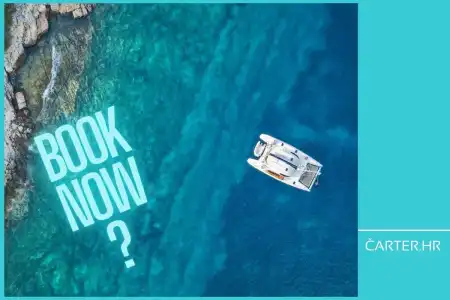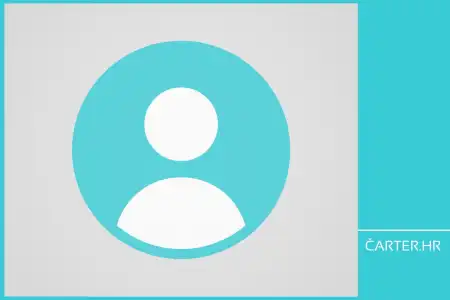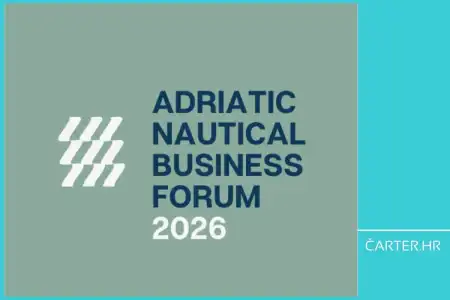
Have you ever returned from an education, workshop or webinar full of ideas? And then you realised very quickly, when you went back to your normal life and work, how those ideas faded away? This phenomenon is known as the "learning gap". It frustrates many, but there is a solution. Find out how to actively apply everything you've learned and how to get the most out of every education.
Have you ever finished a professional workshop, education, conference or webinar feeling "like new" and full of new ideas?
You left with these ideas and full of inspiration. But when you returned to your office at your desk, what happened?
Have all your plans disappeared without a trace?
This is called "a learning gap". And yes, it's frustrating, but it happens, especially to adults.
Of course, you would like to use all you have learned in education. These are all valuable resources, and education was undoubtedly an expense.
And you will certainly be disappointed because you will have no idea where you lost everything you learned that day or those few hours.
Many others attend education with the best of intentions but struggle with what to do next. They don't know how to deal with the learning gap or apply what they've learned to real life and business.
If this "next" arrives and you cannot organise your thoughts or are surrounded by too much information, don't worry—this scenario is all too common.

The learning gap - from information overload to adult learning needs
There are a few main reasons why the learning gap exists.
Firstly, forgetting things is a natural phenomenon. Without actively applying new knowledge, information retention drops significantly over time.
Secondly, traditional educational formats often involve information overload. That bombarding can be overwhelming, making remembering and implementing key takeaways difficult.
The "learning gap" plagues almost all – even the most experienced professionals.
Adult learning expert Malcolm Knowles emphasised active participation and addressing specific needs. Traditional formats often miss the mark, leading to disengagement and forgotten information.
Knowles proposed four fundamental Andragogical principles:
- Need to know - adults are motivated mainly by understanding how new information applies to their work or personal lives. Workshops lacking real-world application can lead to disengagement.
- Experience as a base - adults come to learning situations with a wealth of life and professional experiences. Educational formats that don't leverage this existing knowledge base miss a valuable learning resource.
- Self-directed learning - adults prefer to be involved in planning and taking ownership of their learning journey. Traditional, lecture-style events can feel restrictive and hinder motivation.
- Problem-cantered focus - adults are most engaged by learning that addresses specific challenges they face in their work. Formats that stray from practical application risk losing the learner's focus.

Bridging the gap - 3 actionable tips to supercharge your results
Now that you understand the learning gap, you should know how to overcome it.
Here are 3 actionable tips to ensure you transform what you have learned into applicable success:
1. Craft an action plan (your route to success)
Don't leave workshops, educational conferences or online learning webinars empty-handed. Before you go home, dedicate time to craft a clear action plan.
Identify your key takeaways – the most impactful information that can be applied to your business. Then, for each takeaway, outline specific steps for implementation.
Be detailed about what you need to do, when you'll do it, and who is responsible.
Don't be afraid to seek expert input.
Educators, presenters, or industry contacts can be invaluable resources for refining your action plan and increasing its chances of success.
2. Find your accountability partner (stay on track with a supportive ally)
Let's face it, we all need a little push sometimes.
An accountability partner can be a game-changer when implementing new things you have learned.
Find a fellow attendee with similar goals or consider investing in an industry expert coach.
Regularly check in with your partner, share your progress, and hold each other accountable for following through on your action plans.
3. Leverage online resources & community (the power of continuous learning)
The learning doesn't stop after the education ends.
Internet offers many resources to keep you engaged and support your efforts.
Utilise the resources provided by the organisers – slides, handouts, and recordings can be invaluable for refreshing your memory.
More importantly, tap into the power of online communities. Join forums and groups led by established industry figures.
In these communities, you can find valuable information and support and share your experiences with others, further solidifying your knowledge.

Take action and transform your business
Remember, attending education is just the first step.
You need to take action to unlock the potential of these events.
The true power of these events lies not in the information you hear and see but in your ability to translate what you have learned into action.
By following the 3 actionable tips we've explored – crafting a personalised plan, finding an accountability partner, and leveraging online resources – you can bridge the "learning gap" and transform your ideas into tangible results.
Remember, adult learners thrive on practical application.
So, ditch the passive attendee role, don't let your newfound knowledge fade away - embrace an active approach, and watch your yacht charter business soar!
Ready to take the next step?
Download our free yacht charter marketing checklist and implement your action plan today!
FAQ
I attended an education (workshop, webinar, conference), but I'm already forgetting some key points. What can I do?
Make an action plan before leaving! Identify critical takeaways and outline steps to implement them.
How can I stay motivated to implement what I learned?
Find an accountability partner – a colleague or industry coach – to check in and keep you on track.
Are there resources available to help me after I have completed my education?
Absolutely! Utilise resources like slides and recordings. Additionally, join online communities for ongoing learning and support.
What if the education process felt overwhelming with information?
It happens! Focus on identifying the most impactful takeaways that can be applied to your specific business niche.
I want to get the most out of my future education. Any tips?
Actively take part, and don't hesitate to ask questions. Consider seeking guidance from educators and presenters to refine your action plan after the event.
Categories of trends
- News
- Sale
- Marketing
- SEO
- Web design
- Social media
- Technology
- Regulations
- Management
- Education
- Finances
- User experience
Newsletter
Sign up for the newsletter and receive the latest trends and tips straight to your inbox




